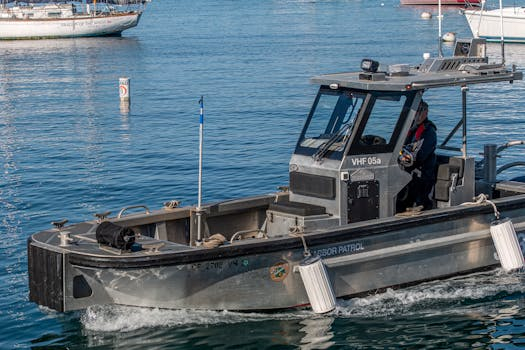The Intricacies of Maritime Law
The world’s oceans are vast and seemingly endless, connecting countries and continents and allowing for trade and commerce to thrive. But with the extensive use of these waters comes a complex system of laws and regulations that govern their use. Maritime law, also known as admiralty law, is an intricate legal system that deals specifically with all matters related to navigation and shipping on the high seas. It is a specialized area of law that requires a deep understanding of both international and domestic laws. In this article, we will delve into the intricacies of maritime law and shed light on its importance in today’s globalized world.
History of Maritime Law
The origins of maritime law can be traced back to ancient civilizations such as the Greeks and the Romans. These civilizations had laws in place to govern maritime commerce and navigation. However, it was during the 18th and 19th century that maritime law evolved into its modern form, primarily due to the growth of global trade and the need for standardization in the rules and regulations governing it.
In the 20th century, various international treaties and conventions were established to establish uniform laws for maritime activities. One of the most significant of these is the United Nations Convention on the Law of the Sea (UNCLOS), which was adopted in 1982 and entered into force in 1994. UNCLOS is considered the cornerstone of modern maritime law and has been ratified by 167 countries worldwide, making it one of the most widely accepted international agreements.
Scope of Maritime Law
Maritime law covers a broad range of activities related to navigation and shipping, including but not limited to:
1. Commercial Shipping
Commercial shipping involves the transportation of goods and commodities by sea. Maritime law governs all aspects of this activity, from the chartering of the vessel to the delivery of the goods at the final destination. This includes the rights and obligations of the shipowners, cargo owners, and any third parties involved.
2. Shipbuilding and Repair
Shipbuilding and repair is another crucial area that falls under the purview of maritime law. It deals with the construction, maintenance, and repair of vessels, which is a highly specialized and technically complex process. Therefore, maritime law covers aspects such as warranties, liability, and insurance in case of any damage or defects in the vessel.
3. Maritime Insurance
Maritime insurance is an essential aspect of maritime law and is primarily used to mitigate risks associated with shipping activities. It covers various aspects related to cargo, ships, and crew, such as collision, loss or damage of cargo, and personal injury claims. Maritime insurance is essential in promoting the smooth operation of shipping activities and safeguarding the interests of all parties involved.
Challenges in Maritime Law
The complexity of maritime law is one of its biggest challenges. As it is a specialized field, there are relatively few experts in the area, making it difficult for businesses and individuals to navigate the legal framework. Moreover, maritime law is also influenced by both domestic laws and international conventions, which adds to its intricacy.
An example of this is the issue of jurisdiction in maritime disputes. As ships can travel through multiple jurisdictions, it can be challenging to determine which laws apply in case of any legal disputes. This has prompted the need for specialized courts and tribunals, such as The International Tribunal for the Law of the Sea, to deal with these complex matters.
The Importance of Maritime Law
The global economy heavily relies on maritime trade, with about 90% of goods being transported by sea. Therefore, maritime law plays a critical role in ensuring the smooth flow of this trade and protecting the interests of all parties involved. It provides a framework of rules and regulations that promote safety, fairness, and transparency in maritime activities.
Moreover, maritime law also plays a crucial role in preserving the marine environment. It has provisions for the protection of marine wildlife and regulating activities that can cause pollution or damage to the oceans. This is especially important in today’s world, where environmental concerns are at the forefront of global discussions.
In Conclusion
The intricacies of maritime law may seem daunting, but it is a necessary legal framework that ensures the smooth operation of global trade and commerce. With the ever-increasing importance of the maritime industry, it is essential to have a robust system in place that governs these activities. As the world continues to evolve, maritime law will continue to adapt and evolve to meet the changing needs of the industry.








